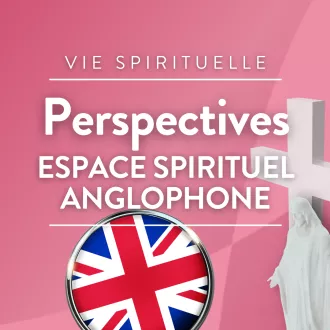The Archaeology of Otherness | A talk by Gavin Brown

You have to pick out its story from the long centuries of man's interaction with his surroundings. We can find its beginning, not only in the metaphor of past innocence provided by the Book of Genesis, but also in the equally informative story brought to light by modern-day studies of ancient DNA, going back to the Stone Age, before the development of agriculture but after the first long migration of human beings out of Africa, hundreds of thousands of years ago.
The story told in Genesis is not made irrelevant as a result of scientific research into the realities of human origins. A picture of blissful innocence emerges from the study of many successful hunter-gatherer communities, living in harmony with nature and possessing a well-adapted understanding of the rules of living with moderate means and expectations. Such peoples as the Australian Aborigines, the South African Bushmen, or the North American Hopi: each of these has a place in the hearts of many admirers, who read into their long-lasting stability a model of frugal integration and spiritual as well as material equilibrium. For thousands of years these communities succeeded in living out a lifestyle which was perfectly adapted to the natural ecosystem of their chosen territory. They recognized that they themselves formed an essential component in an interdependent ecosystem. Such societies were based on harmony with nature, not mindless exploitation of resources which could not be replaced.
However – and this is the crucial point – survival also required a clear dividing line between an 'us' and a 'them': those who were not part of the familiar tribe or group were automatically regarded as aliens, subject to other rules of engagement. In cases of climate change or imported technologies brought in by outsiders, stress could build up which burst the bubble of self sufficiency. One of the grimmest statistics in archaeology is the finding that in some countries as many as half the skeletons dated to the late Stone Age displayed in museum cupboards and cabinets either have fatal head wounds, or arrows lodged in their bones. Life was brutally short, not because of disease or lack of nourishment, but because human relations degenerate quickly into violence when competition for resources becomes an issue between neighbours. DNA proves however that we are all human! There is no scientific basis for racial hatred; it's just an excuse.
The attitudes to otherness revealed by archaeology take two main expressions: weapons and prestige gifts. Both are vital to successful relations between peoples. With the agricultural revolution came new conditions where settled cultivation replaced transitory foraging. But the DNA evidence suggests that the replacement of one population by another was not so much a clean break as a splicing together of bloodlines. Settled communities which till the land are tied to that territory. They rely on their own kinfolk to breed, and if there are not enough women to go round, then they look to the natives for wives. As each generation extends the cultivated area further, so the two populations become more deeply mixed and hybridised. “Go west young man” is a phrase with deep ancestral echoes, and a mixed ancestral heritage is the result.
Another invented technology, the wheel, which suddenly appears in Central Asia between 4000 and 3000 BC, revolutionised human relations and lifestyles in a new way. The horse-drawn wagon on four wheels was accompanied by the horse-drawn chariot on two, and the ages of bronze and iron saw armies of soldiers, some mercenaries, some enslaved subject peoples, impressed into service as agents of ever more efficiently organized military empires. Those who spread this new technology came from a mixed stock, of Iranian farmers and roving horsemen from the steppes of Asia, equipped with mobile homes like Romany travellers. The addition of this exotic eastern element completed the formula which characterises the entirety of modern European DNA.
When Christ came into the world preaching love of one's neighbour, he introduced a new attitude to otherness: the possibility that it is in fact an illusion. Still more centuries of bloodshed and war followed however, giving force to his assertion that men do not know what they are doing. The several declarations of human rights proposed by the Enlightenment and reinforced by the United Nations, slowly are beginning to take hold in the universal conscience. One image, a picture from the window of a space craft, of earth dawning over the moon's horizon, perhaps did more than the whole of prehistory to bring the world to its senses, to see sharply and definitively where we are heading, if we don't get back the vision of our early ancestors and stop treating the world as a dustbin. Let it not have come too late, to tip the balance away from ignorance towards information. If there's one thing science teaches, it's that that's the only true guide, to the future of this litte planet which we share.


Des réflexions spirituelles proposées aux anglophones - sous le titre : Perspectives
RCF vit grâce à vos dons
RCF est une radio associative et professionnelle.
Pour préserver la qualité de ses programmes et son indépendance, RCF compte sur la mobilisation de tous ses auditeurs. Vous aussi participez à son financement !
